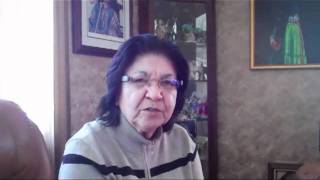Many people will have heard of Leonard Peltier, the Native American jailed for life in 1977 for the murder of two FBI agents, a crime it is widely accepted he did not commit.
An activist with the American Indian Movement, Peltier was given two life terms for the killings, which occurred after a shoot out on the Pine Ridge reservation in 1975. The shoot out took place during the FBI pursuit of a man accused of stealing a pair of cowboy boots and against a background of federal and tribal oppression and brutality. Peltier’s subsequent trial has been dismissed as a farce and efforts are ongoing to have him released.
What is less well known, however are the conditions which led him to be on the South Dakota reservation on June 26, 1975 and which persist for American Indians in their homeland to this day.
Those issues – and the ongoing campaign to have Peltier freed - are highlighted by Dorothy Ninham in a Skype lecture at St Mary’s on Tuesday (5 August). Prevented from travelling to Féile as planned by her doctor, the former director for the Leonard Peltier Defense-Offense Support Committee speaks of some of the many abuses visited on her people and their efforts to “rise up off their knees”.
American Indian activists had arrived on the Pine Ridge reservation after long-running tensions erupted between traditionalist people and corrupt tribal leaders backed by their own militia.
“The Indian people were passive, beaten down,” explains Dorothy, by police brutality; almost blanket unemployment – at one stage 94 per cent; suicide rates three times higher than the average and rampant alcoholism.
“Amongst our people there was a lot of disdain for life.”
Murders going uninvestigated, rapings and widespread violence created a “hopelessness and helplessness” that the activists fought to address.
However, she believes a ‘boarding school mentality’ engendered by the forced placing of Native American children in institutions “made people ashamed to be Native and that mentality persists.”
She describes this policy as “identity theft… the stealing of our language, our culture, our spiritual way of life.”
But they are “starting to fight back” and the Peltier campaign has provided a touchpaper. Money from casinos run on tribal lands is being used for schools where only native languages are spoken and the campaign for Leonard’s release is providing a platform for the wider issues.
“The treatment of our people is something the world needs to see,” says Dorothy who adds, “Until he is released none of us are free.”



